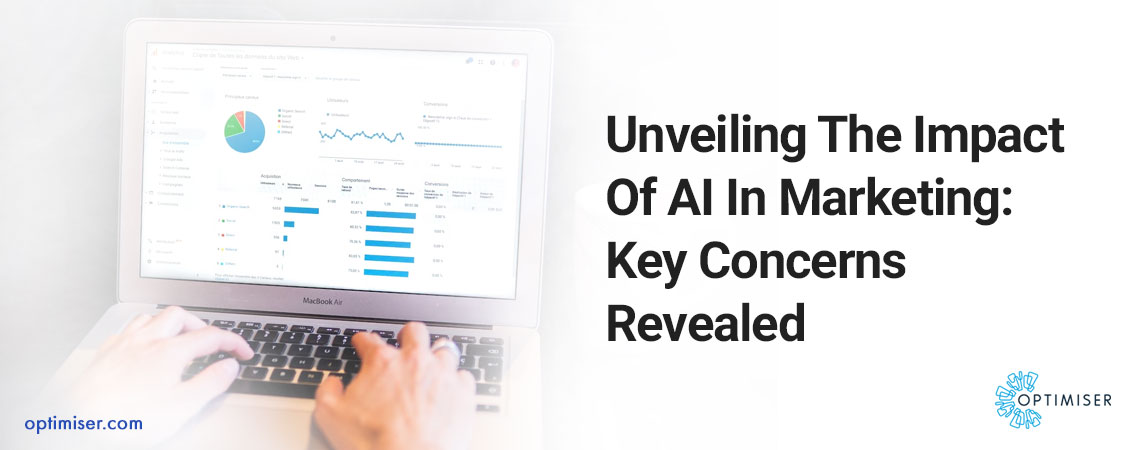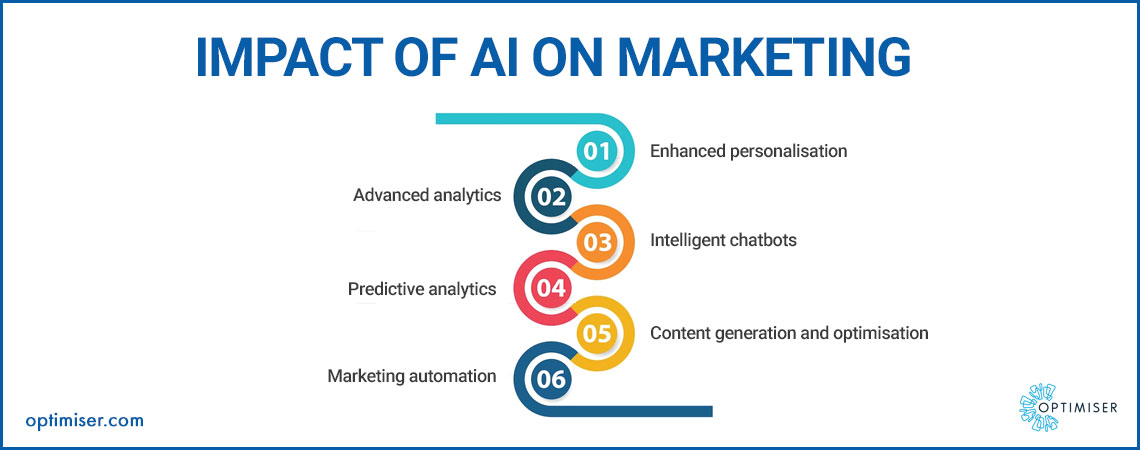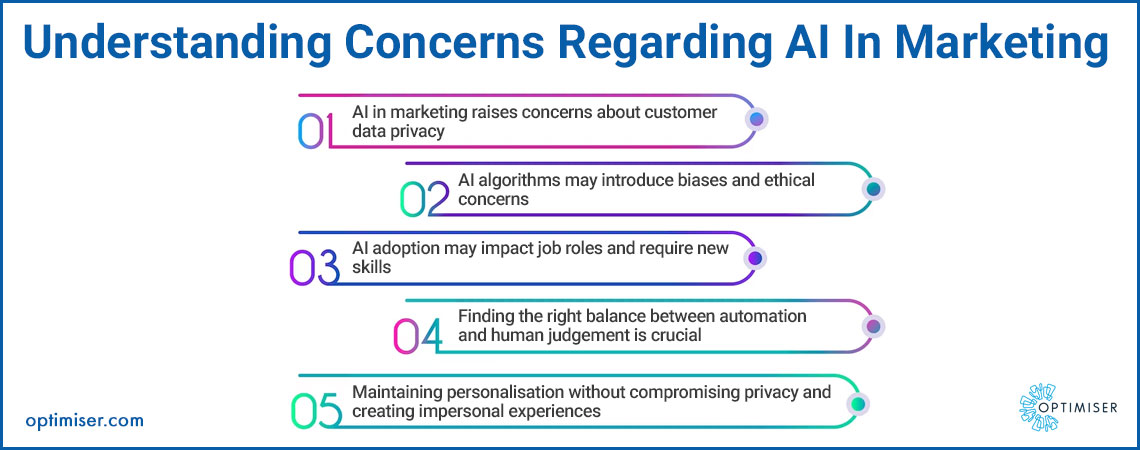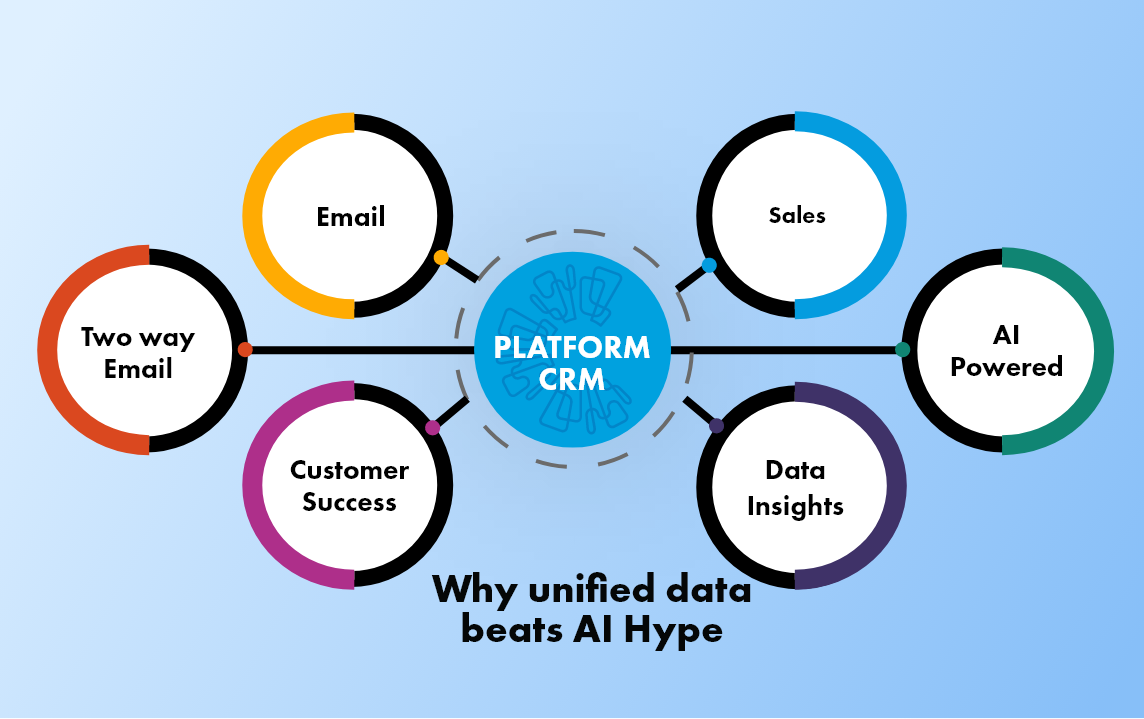
Unveiling The Impact Of AI In Marketing: Key Concerns Revealed
AI empowers marketers to optimise their efforts, increase efficiency, and drive better results in today's competitive landscape. It has revolutionised the field of marketing, offering businesses powerful tools to enhance their strategies and achieve greater success. By leveraging AI marketing software for small business, marketers can analyse vast amounts of data, extract valuable insights, and make data-driven decisions. It enables marketers to personalise customer experiences, as it can analyse customer behaviour, preferences, and purchase history to deliver tailored recommendations and targeted advertising.
Benefits Of AI In Marketing
- Data-driven insights: AI technologies can analyse vast amounts of data quickly and accurately, providing marketers with valuable insights about customer behaviour, preferences, and trends. This allows marketers to make data-driven decisions, develop targeted marketing campaigns, and optimise their strategies for better results.

- Personalisation: AI enables marketers to deliver highly personalised experiences to their customers. By leveraging machine learning algorithms, AI can analyse individual customer data and provide tailored recommendations, content, and offers. Personalisation enhances customer satisfaction, engagement, and loyalty, ultimately driving higher conversion rates and revenue.
- Customer segmentation and targeting: AI algorithms can segment customers based on various attributes such as demographics, interests, and purchase history. This allows marketers to target specific customer segments with relevant and personalised messaging, resulting in more effective and efficient marketing campaigns.
- Chatbots and virtual assistants: AI-powered chatbots and virtual assistants can provide instant and personalised customer support around the clock. These virtual agents can answer customer queries, offer product recommendations, and assist in the purchasing process. By automating customer interactions, businesses can enhance customer experience, reduce response times, and improve overall customer satisfaction.
- Predictive analytics: AI algorithms can analyse historical data and identify patterns and trends to make accurate predictions about future customer behaviour and market trends. This helps marketers anticipate customer needs, optimise their marketing strategies, and stay ahead of the competition.
- Ad campaign optimisation: AI can optimise advertising campaigns by automatically adjusting bids, targeting the right audience segments, and selecting the most effective channels. This maximises the return on ad spend and improves the overall effectiveness of marketing campaigns.
- Content creation and curation: AI tools can generate and curate content at scale. Natural language processing algorithms can create personalised and engaging content, such as product descriptions, blog articles, and social media posts. AI can also analyse and curate user-generated content to identify relevant and high-quality content for marketing purposes.
- Marketing automation: AI enables marketers using CRM for sales and marketing to automate repetitive tasks and workflows, freeing up time for more strategic activities. This includes automating email marketing, social media scheduling, lead nurturing, and campaign management. Automation improves efficiency, reduces human error, and allows marketers to focus on creativity and strategy.
Concerns Around AI In Marketing
- Data privacy and security: AI relies heavily on data, including personal and sensitive customer information. The collection, storage, and analysis of this data raise concerns about privacy and security. Marketers must ensure that proper safeguards are in place to protect customer data and comply with relevant data protection regulations.
- Bias and discrimination: AI algorithms are trained on historical data, which may contain inherent biases. If not carefully addressed, these biases can be perpetuated in AI-driven marketing campaigns. Biased algorithms may result in discriminatory practices, such as targeting or excluding certain demographics. It is crucial for marketers to continually assess and mitigate biases to ensure fair and inclusive marketing practices.
- Lack of human touch and emotional intelligence: While AI can automate and optimise various marketing processes, it may lack the human touch and emotional intelligence needed to understand complex human emotions and nuances. Building genuine connections with customers often requires empathy and intuition, which AI may struggle to replicate effectively.
- Overreliance on AI: Relying too heavily on AI without human oversight can be problematic. AI systems are only as good as the data they are trained on, and they can make mistakes or produce inaccurate results. It is important for marketers to maintain a balance by combining AI insights with human expertise to make informed decisions.

Also Read: Maximising ROI With CRM Analytics: 7 Key Metrics
- Transparency and explainability: AI algorithms can be complex and difficult to understand, making it challenging to explain the reasoning behind their decisions. This lack of transparency can be a concern, especially in cases where AI systems make significant decisions that impact individuals or businesses. Ensuring transparency and explainability of AI systems is crucial to establish trust and accountability.
- Displacement of human jobs: The automation capabilities of AI raise concerns about potential job displacement in the marketing industry. As AI takes over repetitive and manual tasks, there is a possibility of job redundancies or the need for reskilling and upskilling for marketing professionals to adapt to the changing landscape.
- Ethical considerations: AI in marketing raises ethical dilemmas, such as the use of personal data for targeted advertising, the potential for manipulative tactics, and the invasion of privacy. Marketers must be mindful of ethical guidelines and industry standards to ensure that AI is used responsibly and in the best interest of customers.
Optimiser CRM For Marketing Growth With AI-Enabled Automation
Optimiser CRM sales and marketing toolkit comes with valuable tools for marketing growth and success. With its comprehensive features, it enables businesses to effectively manage customer data, track interactions, and streamline marketing campaigns. The analytics and reporting capabilities provide insights into customer behaviour, helping marketers make data-driven decisions.
Optimiser CRM also supports personalised marketing initiatives through targeted messaging and segmentation. Its AI-enabled automation features simplify repetitive tasks, allowing marketers to focus on strategic activities. By leveraging Optimiser CRM, businesses can enhance their marketing efforts, improve customer engagement, and drive growth and success.
Summary
AI brings significant benefits to marketing by providing data-driven insights, enabling personalisation, automating processes, and optimising marketing campaigns. By leveraging AI technologies, businesses can enhance customer experiences, drive better results, and gain a competitive edge in the dynamic and fast-paced marketing landscape.

30 days free trial. No credit card required
 One powerful platform
One powerful platform
 Simple to use
Simple to use
 Comprehensive
Comprehensive



